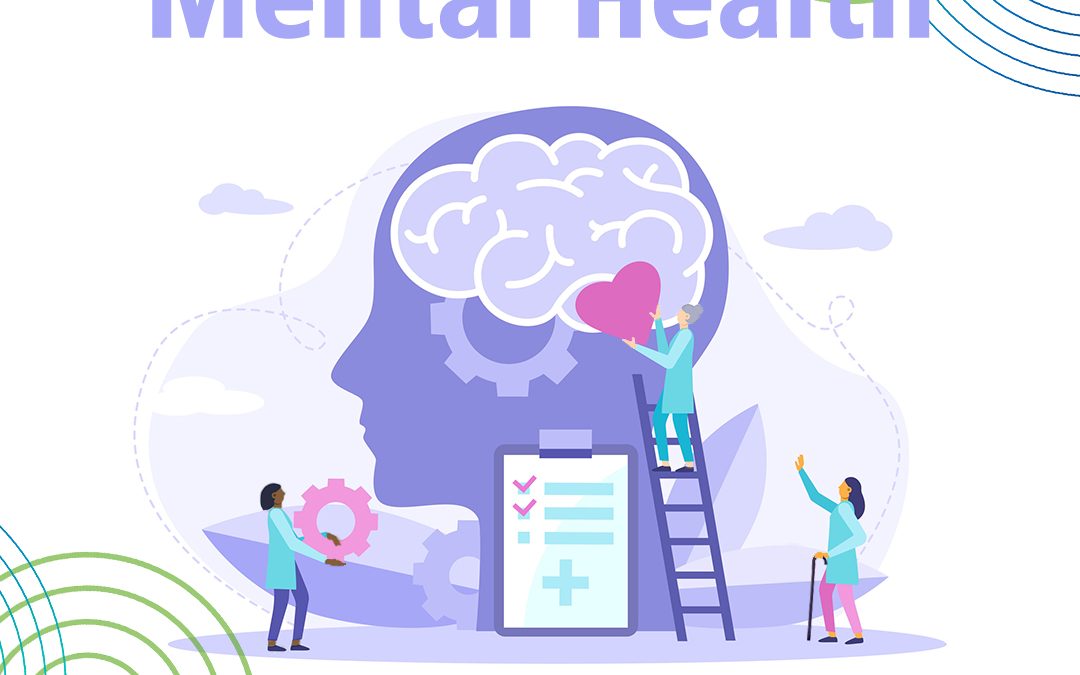April 3-9, 2023, the American Public Health Association (APHA) celebrates National Public Health Week (NPHW). This year’s focus is Centering and Celebrating Cultures in Health and the unique ways different cultures approach health. Each day has a specific theme and calls to action. Today we share NPHW’s piece on Mental Health.
For science.
Mental health is important at every stage of life. It continuously affects how we think, feel and act. It also plays an important role in our physical and social well-being. In the U.S. alone, millions of Americans are affected by a mental illness. Anxiety disorders, bipolar disorders and depression are some of the most common. In fact, one in five U.S. adults experience mental illness each year. For minority populations, these rates are even higher. Indigenous people in America report experiencing psychological distress 2.5 times more than the general population over a month’s time. Transgender people are nearly four times as likely as cisgender people to experience a mental health condition. Cases of mental illness have recently risen due to the COVID-19 pandemic. Rates of anxiety, depression and substance use disorder have increased, particularly for communities of color. In fact, symptoms of depression were reported 59% more frequently by Hispanic adults than non-Hispanic white adults.
For action.
To make an impact on your community’s mental health and well-being, you can volunteer for a local mental health organization. Attend events, such as walks and fundraisers, that support the mental health movement. Ask Congress and local politicians to prioritize making mental health services available. Pledge to #Vote4MentalHealth and find out more about the connection between key policy issues and mental health. Learn about suicide prevention and intervention by joining the National Alliance on Mental Illness or APHA’s Mental Health Section. Use resources and toolkits to explore how to engage in conversations where mental health is viewed negatively. Collaborate with members of your community to locally shift policies and practices toward improving mental health conditions.
If you or someone you know need mental health services, contact the Substance Abuse and Mental Health Services Administration’s national helpline at 1-800-662-HELP. You can also call, text or chat 988 to connect with a trained counselor through the National Suicide Prevention Lifeline.
For health.
Practicing mindfulness, eating a well-balanced diet, engaging in physical exercise and getting a good night’s rest have been proven to help improve mental health. However, improving mental health for both ourselves and our communities requires an all-hands-on deck approach. Many communities across the nation are using American Rescue Plan funding to expand access to health services and invest in mental health. Community engagement can also better mental health and well-being by building a more connected and thriving community. For example, youth serve as important allies in promoting good mental health practices and reducing stigma. Community health workers help bridge gaps to build trust and connect people to the right care in their local communities. Building diverse partnerships with community organizations can also meet health needs that are tied directly to mental health, such as food security and access to care.
In celebration.
For Indigenous communities, having a connection to nature, family and others in the community are important factors in sustaining good mental health. Similarly, Latino culture heavily values the concept of family and these strong networks could be used to fight against mental health stigma. In the faith community, engaging in mediation/prayer, attending congregational gatherings or even volunteering has helped those with mental health conditions. National organizations have provided opportunities for minority groups to come together and celebrate mental health. For example, Mental Health America annually hosts BIPOC Mental Health Month in July to support Black, Indigenous and people of color in engaging in meaningful conversations about the BIPOC mental health experience. Pride Month, observed in June, also serves as an way for those in the LGBTQ+ community to attend events, share resources and engage in healing conversations around mental health.
Source: https://nphw.org/Themes-and-Facts/2023-Mental-Health

